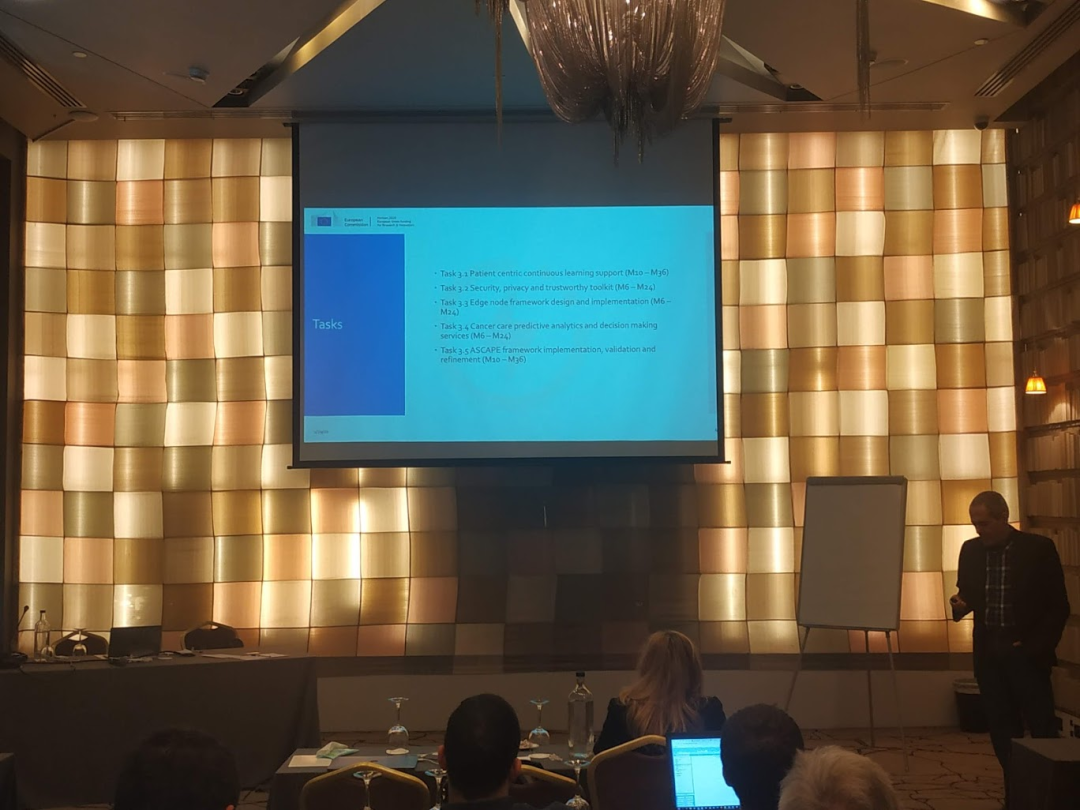
The ASCAPE project’s kick-off meeting
The latest cancer statistics highlight encouraging advances in decreasing cancer-related mortality. However, given that one in two people will be diagnosed with cancer in their lifetime, and due to the growing and ageing population, the absolute number of people living with cancer is set to keep increasing substantially in the near future.
The main objective of H2020 ASCAPE project is to take advantage of the recent ICT advances in Big Data, Artificial Intelligence and Machine Learning to support cancer patients’ quality of life and health status. To achieve its objective, ASCAPE will create an open AI infrastructure that will enable health stakeholders (hospitals, research institutions, companies, etc.) to deploy and execute its AI algorithms locally on their private data. Any new knowledge produced by this process will be sent back to the open AI infrastructure. This way the knowledge will be shared among everyone while the medical data will still remain private. The services to be designed, piloted and deployed inside this project will include intelligent interventions for physiological and psychological support, improved patient and family counselling and guidance, early diagnosis and forecasts of ill-health, identification of disease trajectories and relapse, improved health literacy, etc. ASCAPE will focus the training of the AI in two types of cancer, breast and prostate. This way, it will achieve sufficient coverage across genders as well as age groups, hence facilitating its ongoing improvements and applicability towards any type of cancer in the future. The ASCAPE project will be developed in 36 months by a competitive consortium of 15 partners from 7 countries, which corresponds to a well-balanced structure, involving big companies, SMEs, research centres and universities.
On the 28th and 29th of January 2020 the ASCAPE kick off meeting was held in Athens, hosted by the project’s coordinator UBITECH, with the attendance of all project’s partners. During the two days of the meeting, the partners were able to shortly present their role in the project, their background knowledge and their expectations from their participation in the project.
Furthermore, the work package leaders were able to present the tasks that should be addressed under each work package along with the respective challenges. Additionally, the project’s pilots presentations took place, presenting the respective use case scenarios and their vision on how they will benefit from their participation in the project. Besides the presentations, the consortium partners were engaged in several round table discussions for the core aspects of the projects such as the technologies that will be exploited, the methodologies that will be adopted for the project’s implementation, as well as the exploitation and communications activities that will be conducted. The kick-off meeting ended with a wrap-up discussion and a plan for the activities of the upcoming months.
Blog post prepared by UBITECH.